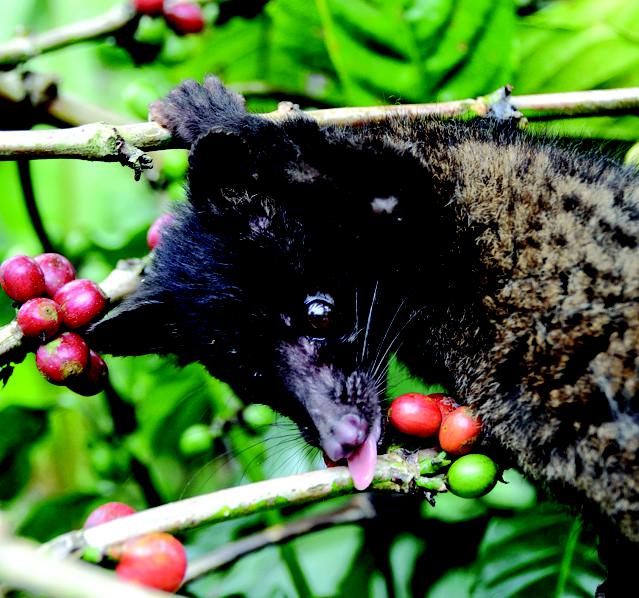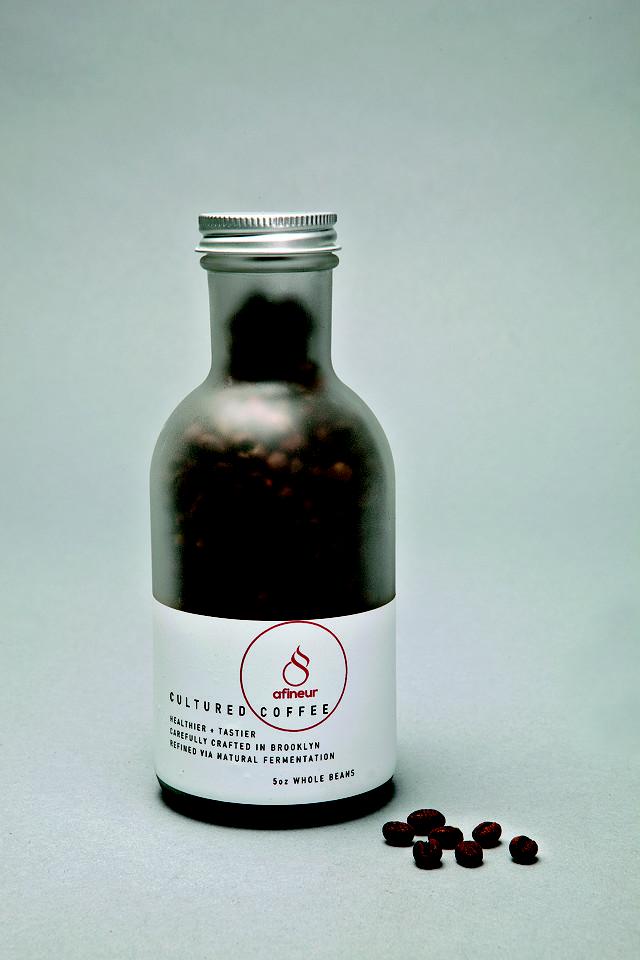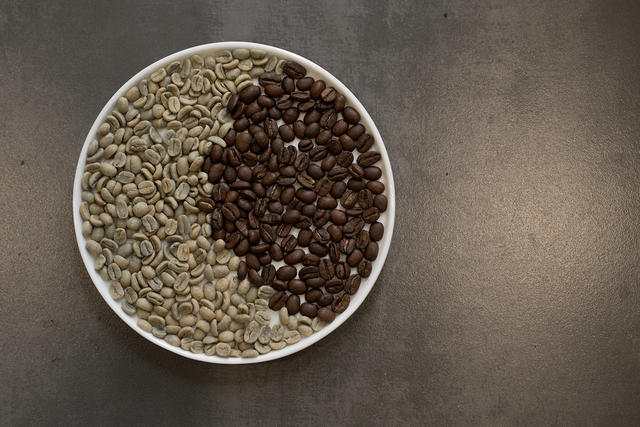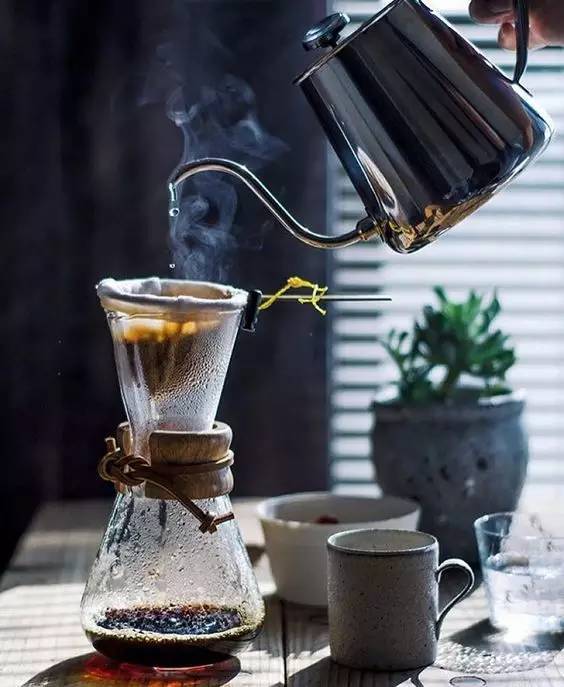Use bacterial chemistry instead of cat shit to make more delicious coffee.

Startup Afineur uses artificial fermentation to produce Kopi Luwak
"We exercise control over which microbes are cultivated for our food."
Indonesian civet coffee (also known as Kopi Luwak) is one of the most expensive types of coffee in the world, selling for more than $1300 a kilogram. The pricing is based on Kopi Luwak's unique fermentation process: a small furry, cat-like animal called the civet devours the coffee fruit and then expels the undigested seeds-the coffee beans-through the digestive system. Coffee beans previously fermented in their digestive tract. Over the past year, biologist Camille de Lebeck (Camille Delebecque) and flavor chemist Sophie Deher (Sophie Deterre) have spent a lot of time trying to replicate the civet's ability to change the flavor of coffee without involving civets and their droppings.
Dillerbeck and Dediher co-founded Afineur in New York in late 2014. What they did was a synthetic ecology experiment that used a highly controlled trial and error process to function beyond the microbes found in the civets' intestines. Unlike civets, "we have control over which microbes are cultivated for our food," Dillerbeck said.

Coffee beans fermented by the civets' gastrointestinal system sell for more than $1300 per kilogram, while those grown in the laboratory by Afineur sell for about $150 per kilogram.
Afineur selected two types of coffee beans from Colombia and Tanzania, and then selected the bacteria for fermentation from a microbial bank containing about 700 species of bacteria and fungi, which are usually absent in the world's few naturally fermented coffee beans. The company mixes hundreds of pounds of unroasted coffee beans with what Dellebeck calls an "ultra-small" mixture of microbes and places them in a metal fermentor for a day or two. In the meantime, these microbes will erode the surface of coffee beans and change their flavor. Subsequent baking removes any remaining microbes from the coffee beans.
The two co-founders say they have identified strains that perform specific functions. For example, some microbes "eat" chemicals that make roasted coffee beans taste bitter and astringent. Other bacteria degrade sugar, protein and even caffeine to achieve the effect of biological decaffeination. The taste of Tanzanian coffee baked by Afineur is not exactly the same as that of authentic civet coffee, but Delebeck says it is intentional. Silky, fruity coffee roasted by Afineur has a low acid content, making it possible to make people's stomachs feel more comfortable. Producing coffee beans in this way rather than using civets also means that problems such as caging or forced feeding are not involved.
As the company's only two full-time employees, de Lebeck and de Dehe first met when they were in high school on the outskirts of Paris. De Dehe worked as a flavor chemist at confectionery maker Mars. Dillerbeck became a caffeine-obsessed medical researcher at Harvard. When Dillerbeck fell in love with various coffee experiments, de Deher became his preferred partner.
They started the company with $60, 000 in venture capital funding from IndieBio, a venture capital firm that focuses on start-ups. Afineur generated about $100000 in revenue in 2015, they said, mainly by selling coffee beans at several retail stores and on Kickstarter at a price of $29 per 5 ounces, or $129 per 30 ounces. The price is cheaper than Kopi Luwak, which is close to the monthly cost of going to Starbucks for a latte every day, but higher than the price of most Starbucks retail beans. Dan Dan Belliveau, former director of technical services at Starbucks, said Afineur's pricing makes its coffee a fairly niche market. "but if it sells well, it's a free market," Bellevue said. "they're doing really well." Belivo is currently the CEO of startup CF Global Holdings. CF Global Holdings is a manufacturer that uses coffee by-products to produce high fiber powder.
Dullebeck says he and Deh are working on ways to ferment grain. For now, they will launch a global ordering service for coffee beans (10 ounces of coffee beans worth $49 a month, or year-round coffee beans at a discount). In addition, they are in talks with whole Foods (Whole Foods) and high-end restaurants in the New York area to sell Afineur beans through their stores. Dullebeck says he is not worried about the limitations of the company's target audience: "consumers are looking for interesting tastes. The fermentation process unlocks new elements. " Writing / Peter Andrey Smith Editor / Yang Gui Translation / Xu Zi? Xuan
In short, Afineur, a startup with only two full-time employees, is using a variety of bacteria and fungi to try to ferment coffee to achieve the rare flavor of coffee beans.
Important Notice :
前街咖啡 FrontStreet Coffee has moved to new addredd:
FrontStreet Coffee Address: 315,Donghua East Road,GuangZhou
Tel:020 38364473
- Prev

Li Ning applies coffee carbon technology to create the most environmentally friendly sportswear
Science and technology lead the future and decorate life with green. Things that seem impossible can become possible in the eyes of those who are willing to do so. When people are constantly pursuing the function of exercise, is there a technology that does not bring pressure to the environment, but also makes you want to achieve moisture absorption and perspiration, anti-UV, deodorization and other functions? the answer is nothing is impossible! As the leading sports in China
- Next

Perfect Fusion of Coffetel Coffee and Hotel
Coffetel, a pioneering work in China's hotel industry, is a new hotel category with coffee as the theme and a combination of hotels. When international hotel brands enter the Chinese market one after another, Chinese hotel brands use Coffetel to make their loudest voice and break the business model of The Legacy Hotel. In the middle of this issue, let's listen to Ma Jian, vice president of James Joyce Coffetel Coffee Hotel.
Related
- Can I make coffee a second time in an Italian hand-brewed mocha pot? Why can't coffee be brewed several times like tea leaves?
- Hand-brewed coffee flows with a knife and a tornado. How to brew it? What is the proportion of grinding water and water temperature divided into?
- What is the difference between Indonesian Sumatra Mantinin coffee and gold Mantinin? How to distinguish between real and fake golden Mantelin coffee?
- What does bypass mean in coffee? Why can hand-brewed coffee and water make it better?
- Unexpected! Ruixing Telunsu lattes use a smoothie machine to foam milk?!
- % Arabia's first store in Henan opens into the village?! Netizen: Thought it was P's
- Does an authentic standard mocha coffee recipe use chocolate sauce or powder? Mocha Latte/Dirty Coffee/Salty Mocha Coffee Recipe Share!
- What is the difference between Vietnam egg coffee and Norway egg coffee? Hand-brewed single product coffee filter paper filter cloth filter flat solution!
- What is the difference between sun-cured and honey-treated coffee? What are the differences in the flavor characteristics of sun-honey coffee?
- How to make Italian latte! How much milk does a standard latte use/what should the ratio of coffee to milk be?

